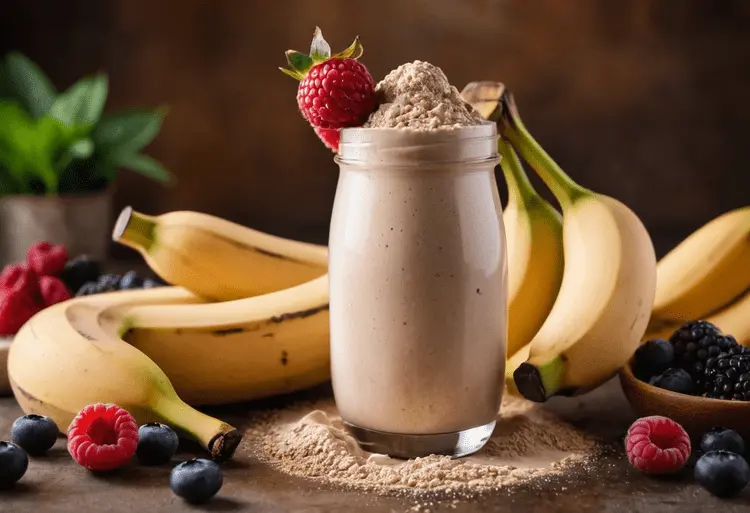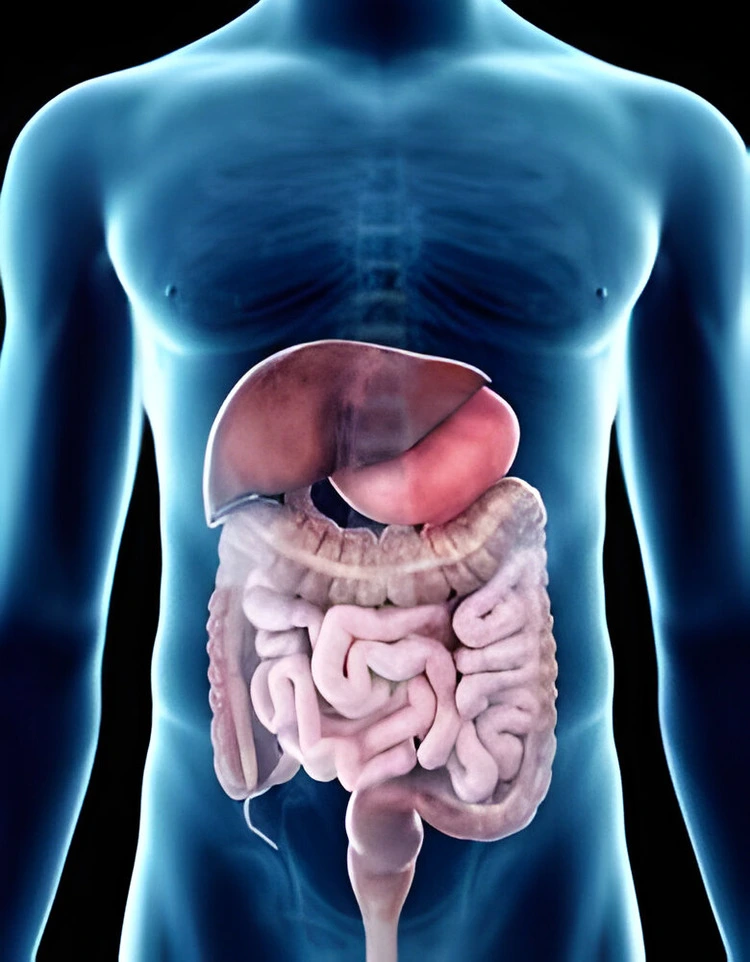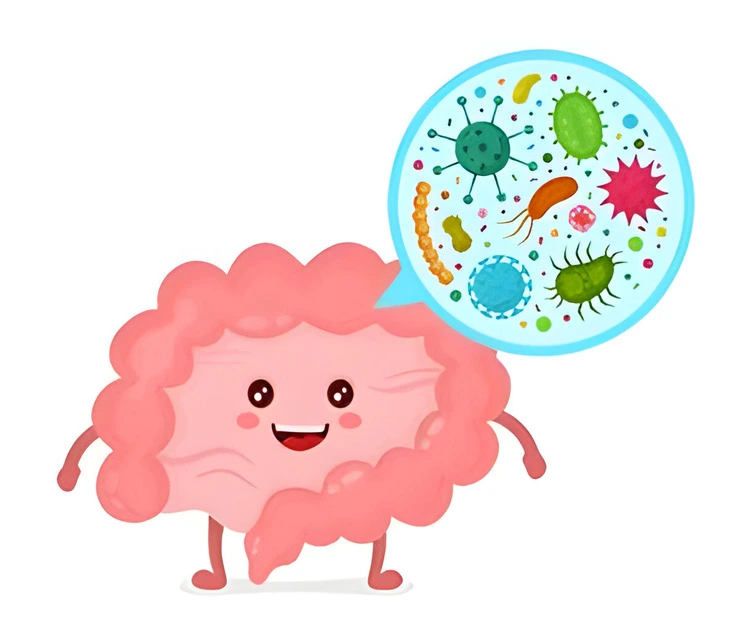Protein digestion is essential for getting the most out of your food, but how does it all work? With so much information out there, it can be confusing to understand how your body breaks down and uses protein.
“Do I need supplements? Am I absorbing all the nutrients? ” Questions about protein digestion can leave you feeling unsure about your dietary choices.
Let’s break it down! In this guide, we’ll cover the basics of protein digestion, from that first bite to how those essential building blocks are used by your body.
Whether you’re a fitness buff, a health enthusiast, or just curious about how your body works, this post will give you the clear answers you need.
Protein Digestion: The Quick Version
- Protein = essential nutrient
- Digestion starts in the mouth
- Stomach acid + enzymes break it down
- Small intestine absorbs amino acids
- Diet and health impact digestion
- Supplements can sometimes help
Table of contents
The Basics of Protein Digestion

Introduction
Think of those delicious protein-packed meals you enjoy – the juicy steak, the creamy yogurt, the hearty lentil soup. But how does your body actually turn that food into the building blocks it craves? Let’s dive into the fascinating world of protein digestion!
What is Protein?
Proteins are the workhorses of your body! They’re made up of tiny units called amino acids, linked together like a colorful chain. Some amino acids your body can produce, others – the “essential” ones – must come from your diet.
- Protein Power: Proteins are essential for building and repairing tissues, creating enzymes and hormones, and even transporting stuff around your body.
The Protein Digestion Journey: A Step-by-Step Guide
Mouth: The journey begins the moment you take a bite. Chewing breaks down food and mixes it with saliva. Is there a slight breakdown of protein in the mouth? Not much, but enzymes like amylase and lipase start working on other food components.
Stomach: This is where the real protein action happens! Powerful hydrochloric acid unravels protein chains and activates an enzyme called pepsin. Pepsin chops proteins into smaller pieces called peptides, getting them ready for further breakdown.
Small Intestine: Here’s where those peptides meet their match! Your pancreas releases a cocktail of enzymes – think trypsin, chymotrypsin, and carboxypeptidase (now that’s a mouthful!)
These enzymes work like super-precise scissors, snipping peptides into individual amino acids. Additionally, a bicarbonate buffer neutralizes stomach acid, creating the perfect environment for absorption.
- The Grand Finale: Finally, those tiny amino acids are absorbed into your bloodstream, ready to be used by cells throughout your body. How cool is that?
Did you know? The average adult needs about 0.8 grams of protein per kilogram of body weight each day. For example, a person weighing 150 pounds (about 68 kg) would need around 54 grams of protein daily.
Check out the informative guide about digestive enzymes from the NIH to learn even more!
Feel free to share your thoughts! Have any of these protein digestion facts surprised you? Let me know in the comments or tag me on social media!
Now that you know how protein is digested, let’s explore another key player in a healthy gut: fiber! Discover the benefits of fiber-rich foods and how they keep your digestion running smoothly.
Factors Affecting Protein Digestion
Think your body is a protein-digesting machine? Things aren’t always that straightforward. Several factors can make or break your ability to unlock all those valuable amino acids. Let’s explore what might be helping or hindering your protein digestion.
Factors that Promote Healthy Protein Digestion
- Chew, chew, chew! Thorough chewing is your first line of defense. It breaks food into smaller pieces and starts the whole digestive process smoothly.
- Is your stomach acidic enough? Your stomach needs sufficient acid to activate pepsin, the enzyme that starts breaking down proteins.
- Enzymes to the rescue! A healthy pancreas pumps out trypsin, chymotrypsin, and other digestive enzymes crucial for protein digestion.
- A happy gut is key. Beneficial gut bacteria support the digestive process and help maintain overall gut health.
- Stress – the silent saboteur. High stress levels can disrupt digestion. Try relaxation techniques to keep your gut and mind calm.
Factors that Hinder Protein Digestion
- Low stomach acid – a common culprit. Conditions like GERD or taking certain medications can lower stomach acid, making protein digestion harder.
- Are your enzyme levels sufficient? Pancreatitis or other pancreatic issues can reduce enzyme production, hindering your body’s ability to break down proteins.
- Gut troubles galore. IBS, celiac disease, and other gut conditions can significantly interfere with protein digestion.
- Intolerances – sneaky saboteurs. Hidden food intolerances to things like dairy or gluten can cause digestive distress and impair protein digestion.
- Medication side effects. Certain medications can disrupt digestion as a side effect. If you suspect this, consult your doctor.
- The aging factor. As we get older, our bodies naturally produce less stomach acid and digestive enzymes.
Optimizing Your Protein Digestion
Feeling a bit sluggish after a protein-packed meal? Ever wonder if you’re truly getting the most out of the steak, chicken breast, or tofu scramble on your plate? Let’s dive into how you can maximize your protein digestion!
Dietary Strategies
- Choose the right protein sources. Aim for complete proteins, containing all the essential amino acids your body needs. Meat, poultry, fish, eggs, dairy, soy, and quinoa are your superstars. Don’t fret if you’re plant-based – strategically combining different plant proteins throughout the day can provide that full spectrum.
- Chew, chew, chew! Proper protein digestion starts with thorough chewing. This breaks food into smaller pieces and gives those powerful digestive enzymes a head start.
- Gut health is key. Is a healthy gut essential for optimal protein digestion? Absolutely! A thriving gut microbiome (think beneficial bacteria) aids in breaking down food and supports nutrient absorption. Check out this article on gut bacteria and health: Cleveland Clinic on Gut Bacteria for more.
Addressing Digestive Discomfort
- Feeling bloated or gassy? Digestive enzyme supplements may give you a helping hand. Talk to your doctor to find the right option for you.
- Think you have food sensitivities? Listen to your body! Dairy, gluten, and other common triggers might be hindering your protein digestion. Consider an elimination diet or food sensitivity testing.
- Optimize stomach acid. Is your stomach acid production sufficient for breaking down proteins? Simple strategies like a splash of apple cider vinegar with meals might help! Supplement ideas should be discussed with your healthcare provider.
Let me know if you’ve tried any of these tips! Did they make a difference for you? Feel free to share your experiences in the comments or tag me on social media.
Protein Requirements and Individual Needs

How Much Protein is Right for You?
Think you know how much protein you need? It might surprise you! Your protein needs are unique. Factors like age, how active you are, and even your overall health status play into the equation.
So, what’s the magic number? A basic guideline is to aim for 0.8 grams of protein per kilogram of your body weight. But, this is just a starting point.
Here’s where it gets a bit more personalized:
- Active individuals and athletes: You likely need more protein to support muscle growth and repair. Consider consulting a registered dietitian or sports nutritionist for tailored recommendations.
- Older adults: You might benefit from slightly higher protein intake to help maintain muscle mass and strength.
- Plant-based eaters: If you’re vegetarian or vegan, prioritize getting complete proteins from sources like soy, quinoa, or a combination of legumes and grains. Check out this guide on [plant-based protein sources] (insert external link #3, anchor text: “plant-based protein sources”).
Is There a Limit?
While protein is essential, consuming excess amounts doesn’t offer additional benefits. A healthy diet focuses on balance, so don’t neglect other vital nutrients like healthy fats and complex carbohydrates.
Want personalized guidance on figuring out your protein needs? Talk to a registered dietitian. They can create a nutrition plan that supports your specific health goals and ensures optimal protein digestion.
Protein Supplements: When and How
Think protein supplements are a must-have? Or maybe you’re not sure if they’re right for you? Let’s dive in and see if adding a scoop or two makes sense for your goals.
Types of Protein Supplements
First, the basics. Protein powders come in many forms:
- Whey: A fast-digesting milk protein, ideal for post-workout.
- Casein: Slower-digesting milk protein, great before bed.
- Soy: A plant-based option suitable for vegans.
- Plant-based blends: Combine pea, rice, hemp, and other sources for a complete amino acid profile.
So, are Supplements Right for You?
Honestly, do you struggle to get enough protein from whole foods? If the answer is yes, supplements might offer a convenient boost for your protein digestion process. They can be especially helpful if you’re an athlete, very active, or have specialized dietary needs.
Choosing Wisely
Not all protein powders are created equal. Look for brands with high-quality ingredients that have undergone third-party testing.
Let’s Get Practical
Timing can impact how your body utilizes protein supplements. Consider a fast-acting whey protein after workouts for muscle recovery. Aim for a casein protein before sleep to provide a steady stream of amino acids throughout the night.
Remember, food first! While supplements are helpful, getting your protein from whole food sources is always a priority. Think lean meats, fish, eggs, legumes, and nuts – tasty ways for optimal protein digestion.
Myths and Misconceptions about Protein Digestion

Think you know everything about protein digestion? Let’s put those beliefs to the test! There’s a lot of misinformation floating around, so let’s bust some common myths and set the record straight.
Myth 1: Too much protein will wreck your kidneys
Is this true? For most healthy people, the answer is no. Your kidneys work hard to filter waste, and that includes the byproducts of protein digestion. However, if you already have kidney issues, it’s best to consult with a doctor to determine the optimal protein intake for you.
Myth 2: Your body can only handle a little protein at once
Ever heard that you can only absorb about 30 grams of protein per meal? This idea is outdated! Your body is amazing – it breaks down protein throughout the day and uses amino acids as needed. Focus on getting enough protein overall, rather than worrying about a per-meal limit.
Myth 3: Plant-based proteins don’t cut it
Are animal proteins the only path to good protein digestion? Not necessarily! While it’s true some plant proteins are incomplete, the answer lies in smart combinations. Think beans and rice, or hummus with whole-wheat pita – a delicious way to get a complete amino acid profile.
Let’s keep the conversation going! Do you hear these myths often, or have some burning questions about protein digestion? Let me know in the comments, or tag me on social media!
Remember: Understanding how your body works empowers you to make the best choices for your health.
Did you know that the way you digest protein can have a major impact on conditions like gout? If you’re ready to take control of your health, my 7-Day Gout Diet Plan can help you unlock relief.
Digestion Dilemmas: Your Protein FAQs Answered
Protein digestion is a multi-step process. It starts in the mouth with chewing, continues in the stomach with acids and enzymes, and finishes in the small intestine where it’s absorbed into your bloodstream.
Your body uses acids and special enzymes called proteases to break down the protein you eat into smaller pieces called amino acids.
Multiple organs play a role! The process starts in the stomach, but the majority of protein digestion and absorption happens in the small intestine.
Once broken down into amino acids in the small intestine, protein is absorbed into your bloodstream and transported to cells throughout your body.
It could be. Digestive discomfort can sometimes indicate incomplete protein breakdown. Consult a doctor or registered dietitian to explore the cause.
They might help if you have a diagnosed deficiency. Always consult your doctor before starting any new supplements.
Yes! Combine different plant-based proteins (beans, lentils, nuts, whole grains) to ensure you get all the essential amino acids.
Try fish, eggs, poultry, Greek yogurt, and well-cooked lentils and beans